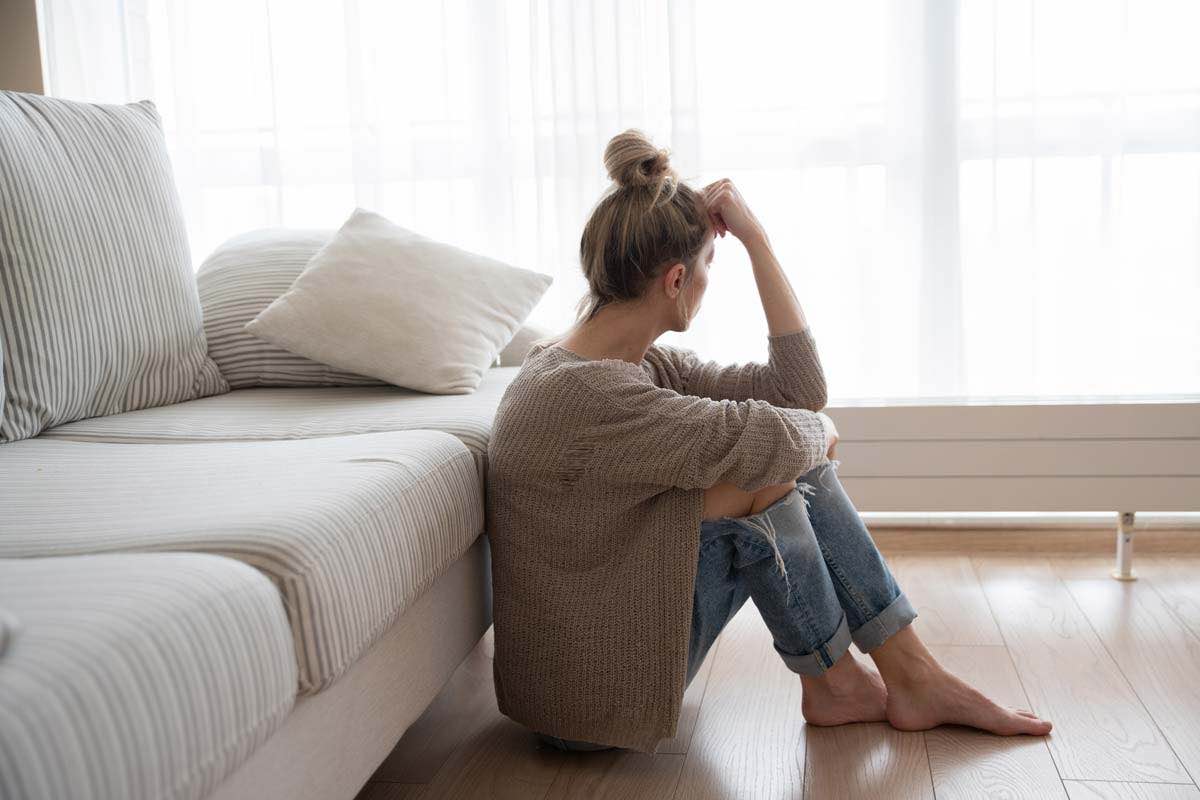Reviewed By Cara Collins - Registered Member MBACP Adv. Dip.
Living With Depression
22 March 2021
Georgia Ramm shares her experience of depression, how it made her feel and the impact it had on her life.
Depression is an all-consuming affliction that can happen to anyone at any time. But for something so pervasive, we sometimes struggle to look it in the eye. Guest blogger, Georgia Ramm, writes about living with depression, how it affected her life and how she found support. Produced in collaboration with youth charity, Headliners.
The term “mental health” sounds more strange than it should. In my mind’s eye, it’s a flickering orange neon sign looming over an empty billboard in a dusty wasteland. It’s now at the forefront of societal conversation and there’s been a global change in understanding. Mental health has now become a part of the social media circus.
I have suffered from depression and anxiety. When I first realised I was, I thought “Fuck.” I knew it was a hole that was going to be difficult to climb out of, and for a long time, I didn’t have the tools. Eyes diverted when I talked about it because people didn’t understand. I’ve since managed to come through it, and now here I am, sharing my story.
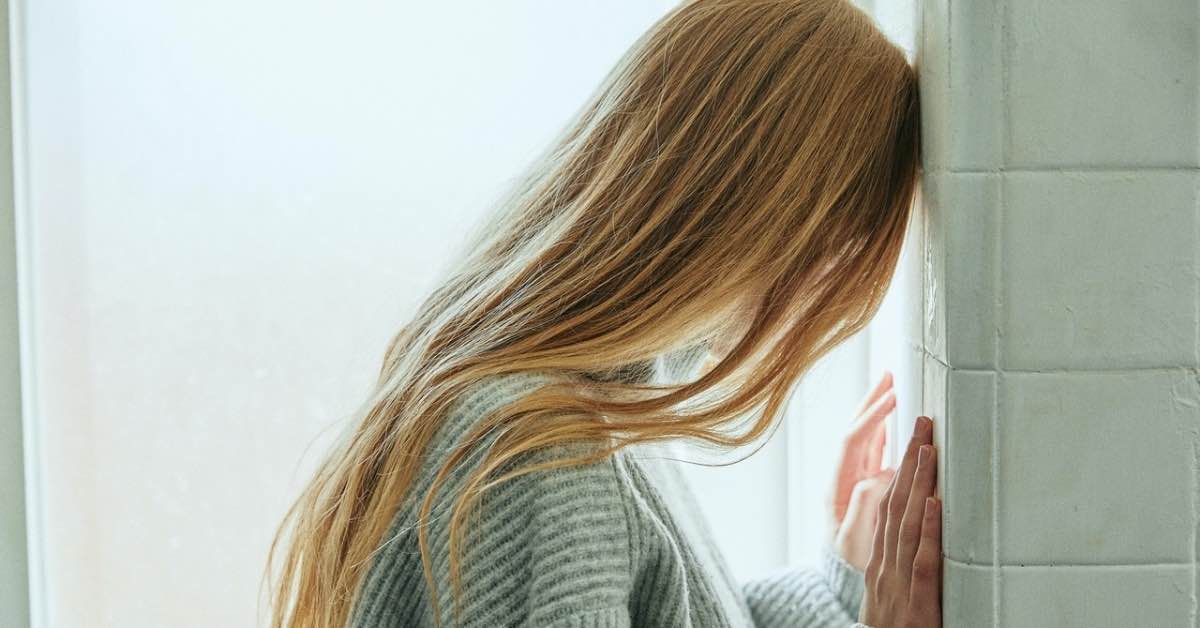
Feeling out of place
It started in school, when I believed I didn’t have anything going for me. When I got a C1 in my 11+ and was accepted to a high-achieving grammar school in Belfast, I felt I wasn’t good enough. My teenage years were the start of crippling low self-worth. I struggled to make friends and I felt self-conscious being from a working-class family around middle and upper class people. I couldn’t identify with others. To gain some sort of inclusion into ‘school life’, I started playing an instrument, but everyone else in the group was better than I was, and I felt more excluded. This low self-worth and confidence became the foundations of a very difficult early adulthood. When I left school at 18, I went to university but I couldn’t handle the independent pressure and cultural change of southern England. I came back after three months and floated through jobs in hospitality. Then one fine, bright morning, I woke up with depression.
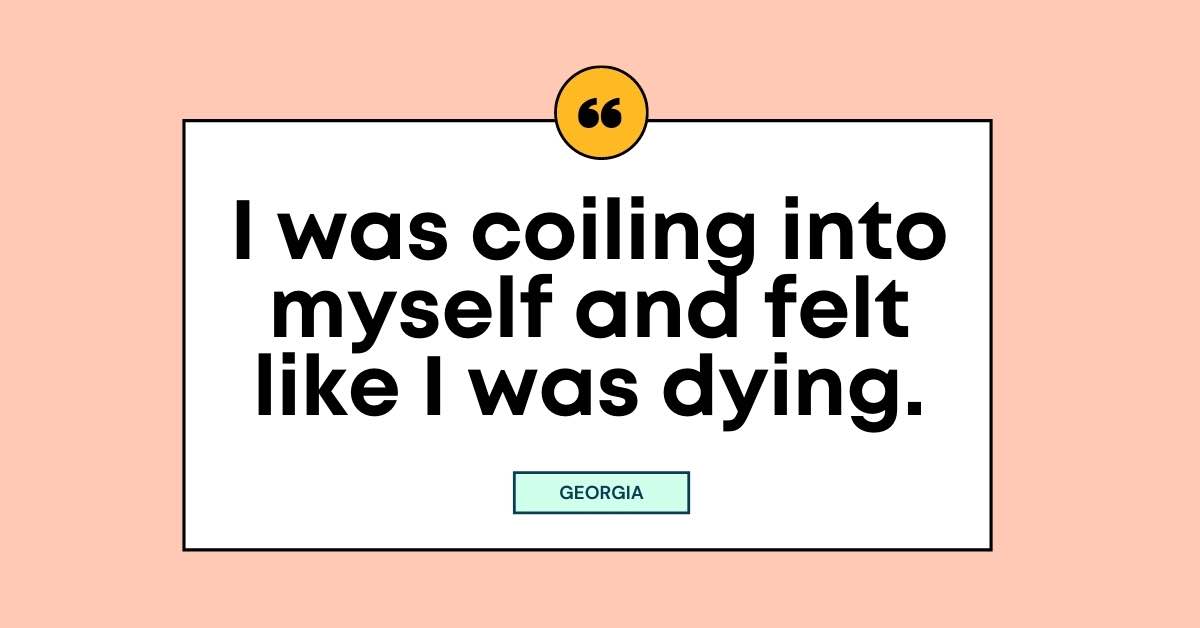
During the years of 18-21, I was drinking and preoccupied with boys while my friends were working on their futures in the UK’s top universities. I partied and made friends, which was fun at the time, but I knew it wasn’t contributing to myself or my future. I was in and out of rented houses, rooms, relationships and jobs. Life was altogether unstable.
Rock bottom
It began to change at 21, when I started smoking weed and taking other drugs with a guy I met through a friend. I started to become more aware of what was going on around me. I entered their group and couldn’t believe I’d met such like-minded people. A few months later, I realised they weren’t so like-minded. Toxic behaviour masqueraded as friendship and the party facade crumbled. People I thought were real friends simply weren’t. I was hanging out with people every day, then it stopped.
I started to ask myself: “why?”
Why had this happened? Was I responsible? What are my true values? What was this facade? Why couldn’t I play the game? Why couldn’t I defend myself? This led to more questions about my past, and I realised I had never lived a life I was proud of.
Why did I feel so out of place in school and life? Why did I let people put me down? Why did managers in jobs always have a problem with me? I realised I wasn’t truly happy and didn’t know how to get there, either. I didn’t feel that I could voice my opinion loud enough or that it even mattered at all. These introspective, paranoid thoughts were becoming physically painful.
Trying to get to the root of my depression put me in a dark place of unravelling childhood trauma; ways I was mistreated; who I could trust; how I was parented; how my parents were parented and who my true friends were. It was extremely debilitating.

Depression’s toil
I spent the next three years trying to unravel these knots. I lay in bed and asked myself the same question over and over again. I watched Netflix endlessly to distract myself from my painful thoughts. I became nocturnal. I smoked so many cigarettes. I failed at my jobs, I failed at my friendships and failed at looking after myself.
I became sensitive to everything: food, people, air, normality. I was coiling into myself and felt like I was dying. I couldn’t speak. I couldn’t make eye contact. I was aware that people found me difficult to understand, which pushed me further into the hole. In the past, I went out every weekend. Now, I shook with anxiety when I was invited anywhere. I waited to be tired, so I could forget how hard being awake was. My life really was slipping away from me.
People tried, but no one could help. I wanted someone to look after me, nurse me back to health and I thought I needed to be institutionalised. I couldn’t do basic tasks.
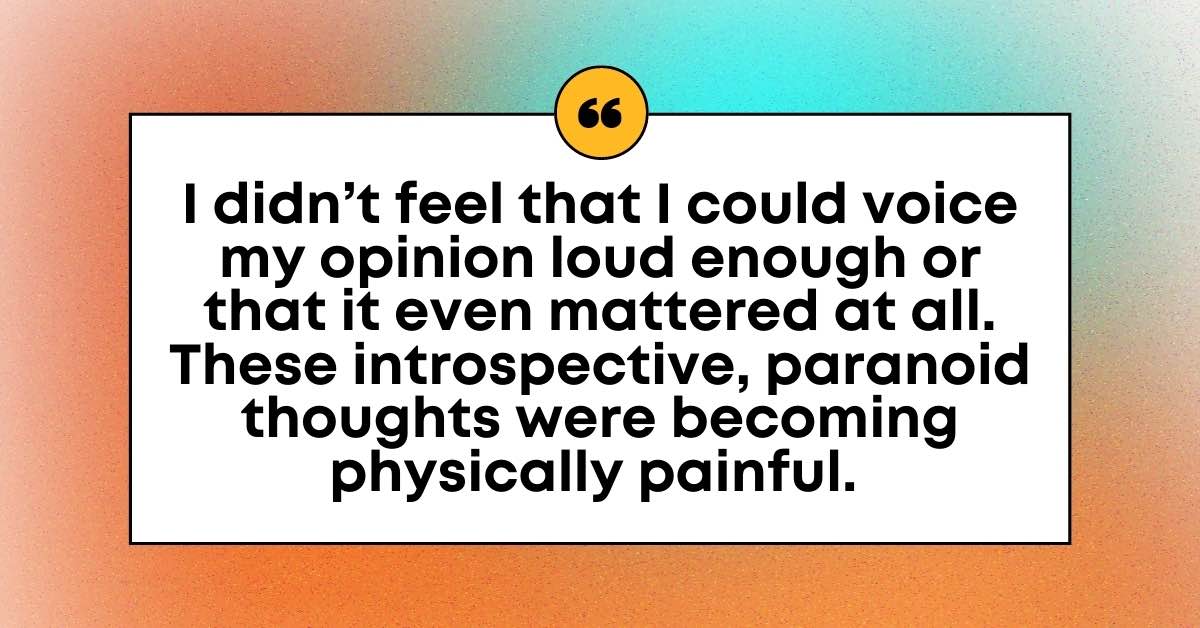
I saw a counsellor for six weeks when I was 21 and then a psychotherapist for 10 weeks the following year. Neither helped. After that, I was in my lowest state. I was at rock-bottom. I told my dad life was too hard for me. I didn’t know the way forward now, and I told him I was considering taking my own life. He cried, and whilst on my way home, I had a bit of an epiphany. I had three younger brothers, and it would affect their development if I died. They were 7, 10 and 16 and I imagined them at my funeral. I made a pact with myself that I’d try to do everything I could to save myself before I acted, whether it took six months or ten years.
Looking back, I know that I needed to reach rock bottom to be where I am now, but I’ll never forget that it almost killed me.
Making healthier choices
I started with what I could control: my diet. I was on Universal Credit at the time and found reduced fresh fruit and veg in Tesco every day. Over the next year, I tried to eat three meals a day. I started to engage with people; my family, friends and strangers. I went on long walks. I practiced smiling in the mirror and being my own friend. I researched depression and tried to understand what was happening to me on a scientific level. I focused on creating a healthier sleeping pattern. I tried to schedule things to do in the day. I quit my job and took time off work to focus on getting better. People close to me knew what I was going through and were compassionate about my efforts. Soon the rungs on the ladder were forming for me to climb out of the hole. I started to feel seen. Eventually I got another job and the efforts I had made started to actualise in real life.
Fast forward, the pandemic hit and my relationship ended because it wasn’t helping me progress. I started a programme with Springboard, a youth work organisation, with specific programmes in place for people who struggled like I did. I was allowed to be vulnerable and it taught me to live at my own pace.
It lasted six months, and by the end, I was a different person. I was able to consolidate what I was learning and utilised the time, knowledge and experience of a team of professional youth workers that wanted to help me. When the programme was finished, I took up any qualifications they offered. I gained the respect of the organisation who could see how much effort I was putting in. Through Springboard, I felt like a valued member of society. I was smiling again. I looked at myself in the mirror and liked what I saw back. I started gaining the confidence to take control. I started to eat healthily; stopped smoking; stopped drinking as much; started going to the gym. I was doing three courses and a part-time job. I applied for a full-time job with that same youth organisation in January, one year after I had started as a participant, and was accepted. I still can’t believe this happened to me!
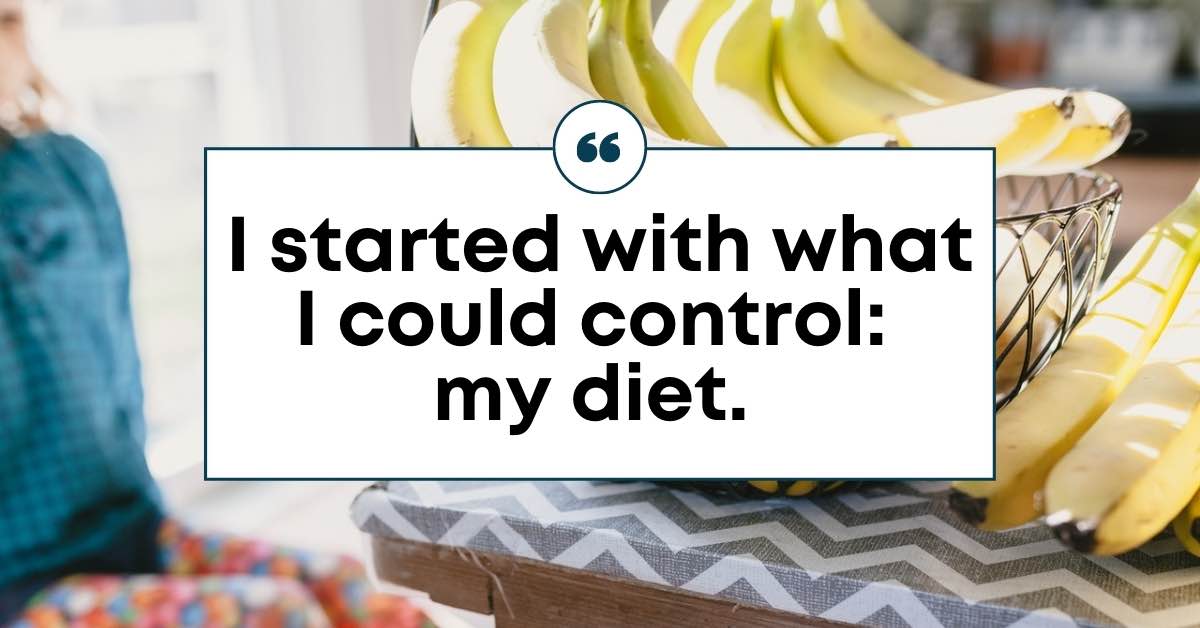
Where we are today
I believe a lot of the mental health problems young people face are due to the change in today’s society. You can be “whatever you want”, but you just have to “work really hard”. What if you don’t know? What if your support system at home was unstable? What if your confidence is unstable?
What I believe would work is mental health support for everyone. Initiatives, funding and leaders speaking out about their own experiences. People talking about the hard aspects of life on social media platforms.
To those reading:
Be as kind as you possibly can. If someone trips, help them. If someone cries, comfort them. If someone needs help, help them. Laugh at people’s jokes. Try to see them at their level. Ask people questions about their lives and try to understand their background. Be open-minded, it’s actually really fun and feels great. Take the leap and don’t be afraid. We’re ALL individual.
To those struggling:
You are going through something extraordinary and it is as hard as you think it is. It does deserve the weight that you feel it does. I’m sorry if you aren’t getting the support you need, but believe me when I say this: you can get through it. Positive thoughts are as important as negative and your mental health is as important as your physical. My dad would tell me, ‘You can’t run a marathon with a broken leg’.
I think the key ingredient to combatting this horrible disease of the mind is empathy and kindness. Plant seeds in the wasteland and watch them grow slowly.
And remember: you have one life. Try and make it as good as you want it to be for no-one but yourself.
Get Inspired Further
Lets talk about Dementia
Are you struggling with memory issues? Therapist Sean Hughes of SPH Therapy explores memory loss, dementia & when to seek help.
My Experience She Saved Me
Elaine looks back on her journey of recovery from self-harm and suicidal thoughts. She recounts how reaching out to a helpline was the first step towards saving herself.
what is macmillan health and wellbeing service
I’ve been affected by cancer. How can Macmillan Health and Wellbeing Service help me?
